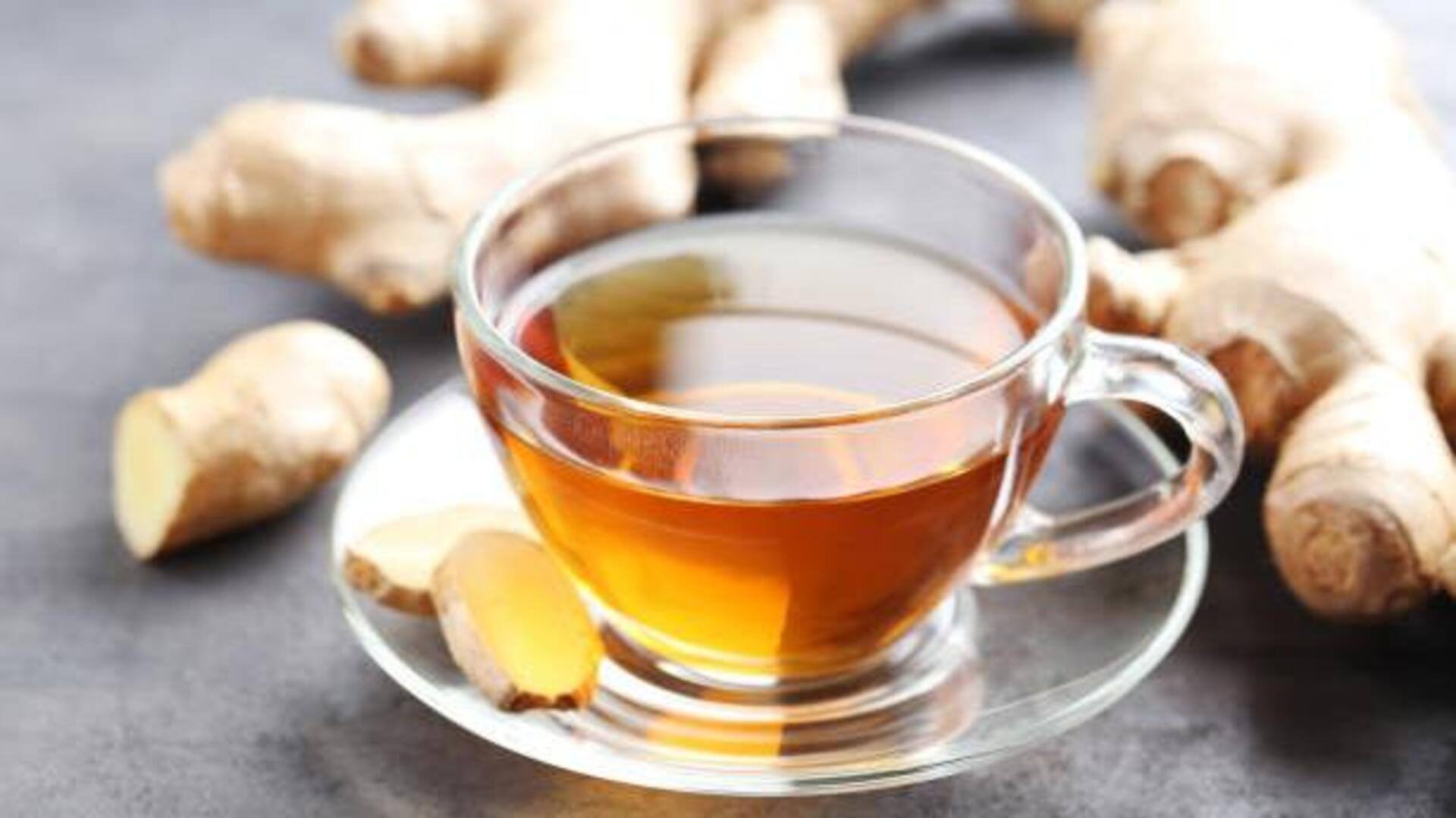
Truth about ginger tea: 5 myths busted
What's the story
Ginger tea is often hailed as a miracle cure, with many claiming it can do everything from boosting immunity to aiding digestion. However, not all of these claims are backed by scientific evidence. While ginger does have some health benefits, it's important to separate fact from fiction. This article aims to debunk five common myths about ginger tea and provide a clearer picture of its actual effects.
#1
Myth: Ginger tea boosts immunity
Many believe that drinking ginger tea can significantly boost the immune system. While ginger does have anti-inflammatory properties, it doesn't directly enhance immune function. Some studies suggest that compounds in ginger may help reduce inflammation and oxidative stress, but this doesn't translate into a dramatic increase in immunity. A balanced diet and healthy lifestyle are more effective for supporting immune health.
#2
Myth: Ginger tea aids weight loss
Another common belief is that ginger tea is a magic potion for weight loss. While ginger may slightly increase metabolism and reduce appetite, the effect is minimal and not enough to cause significant weight loss on its own. Sustainable weight management requires a combination of healthy eating habits and regular physical activity, rather than relying solely on any one beverage.
#3
Myth: Ginger tea relieves all digestive issues
Many people think that ginger tea can cure all digestive problems, from bloating to nausea. Although ginger has been used traditionally to ease nausea and improve digestion, it isn't a cure-all. It may help with mild digestive discomfort but isn't an alternative to medical treatment for serious gastrointestinal conditions. Consulting a healthcare professional for persistent digestive issues is always advisable.
#4
Myth: Ginger tea lowers blood sugar levels significantly
Some claim that drinking ginger tea can significantly lower blood sugar levels in diabetics. While some studies indicate that ginger may have a modest effect on blood sugar control, it's not a substitute for diabetes management strategies like medication and dietary adjustments. Those with diabetes should consult their healthcare provider before making any major changes to their diet or treatment plan.
#5
Myth: All forms of ginger are equally beneficial in tea
Not all forms of ginger are equally beneficial when used in tea preparations. Fresh ginger root tends to retain more active compounds than dried or powdered forms over time due to oxidation processes during storage and processing stages involved therein. This could lead to reduced potency levels compared against fresh counterparts used directly within brewing processes themselves, resulting ultimately in varying outcomes depending upon preparation methods employed accordingly.